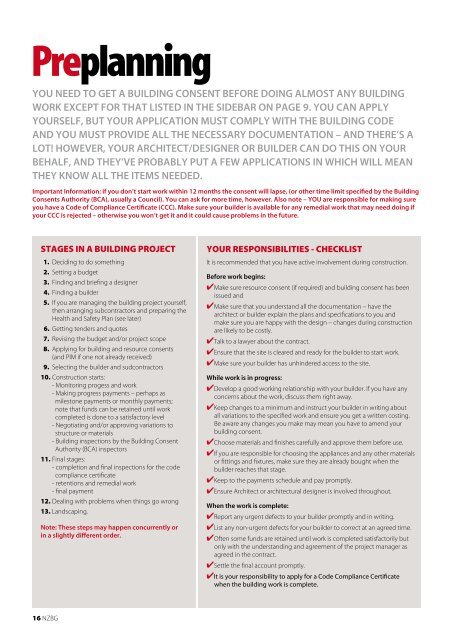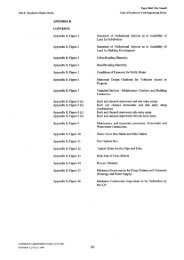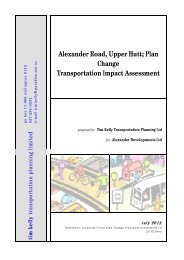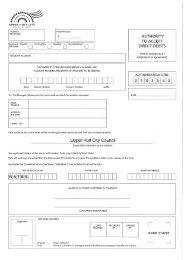Your guide to building a better home (PDF, 6.7M - Upper Hutt City ...
Your guide to building a better home (PDF, 6.7M - Upper Hutt City ...
Your guide to building a better home (PDF, 6.7M - Upper Hutt City ...
Create successful ePaper yourself
Turn your PDF publications into a flip-book with our unique Google optimized e-Paper software.
Preplanning<br />
YOU NEED TO GET A BUILDING CONSENT BEFORE DOING ALMOST ANY BUILDING<br />
WORK EXCEPT FOR THAT LISTED IN THE SIDEBAR ON PAGE 9. YOU CAN APPLY<br />
YOURSELF, BUT YOUR APPLICATION MUST COMPLY WITH THE BUILDING CODE<br />
AND YOU MUST PROVIDE ALL THE NECESSARY DOCUMENTATION – AND THERE’S A<br />
LOT! HOWEVER, YOUR ARCHITECT/DESIGNER OR BUILDER CAN DO THIS ON YOUR<br />
BEHALF, AND THEY’VE PROBABLY PUT A FEW APPLICATIONS IN WHICH WILL MEAN<br />
THEY KNOW ALL THE ITEMS NEEDED.<br />
Important Information: if you don’t start work within 12 months the consent will lapse, (or other time limit specified by the Building<br />
Consents Authority (BCA), usually a Council). You can ask for more time, however. Also note – YOU are responsible for making sure<br />
you have a Code of Compliance Certificate (CCC). Make sure your builder is available for any remedial work that may need doing if<br />
your CCC is rejected – otherwise you won’t get it and it could cause problems in the future.<br />
STAGES IN A BUILDING PROJECT<br />
1. Deciding <strong>to</strong> do something<br />
2. Setting a budget<br />
3. Finding and briefing a designer<br />
4. Finding a builder<br />
5. If you are managing the <strong>building</strong> project yourself,<br />
then arranging subcontrac<strong>to</strong>rs and preparing the<br />
Health and Safety Plan (see later)<br />
6. Getting tenders and quotes<br />
7. Revising the budget and/or project scope<br />
8. Applying for <strong>building</strong> and resource consents<br />
(and PIM if one not already received)<br />
9. Selecting the builder and sudcontrac<strong>to</strong>rs<br />
10. Construction starts:<br />
- Moni<strong>to</strong>ring progess and work<br />
- Making progress payments – perhaps as<br />
miles<strong>to</strong>ne payments or monthly payments;<br />
note that funds can be retained until work<br />
completed is done <strong>to</strong> a satisfac<strong>to</strong>ry level<br />
- Negotiating and/or approving variations <strong>to</strong><br />
structure or materials<br />
- Building inspections by the Building Consent<br />
Authority (BCA) inspec<strong>to</strong>rs<br />
11. Final stages:<br />
- completion and final inspections for the code<br />
compliance certificate<br />
- retentions and remedial work<br />
- final payment<br />
12. Dealing with problems when things go wrong<br />
13. Landscaping.<br />
Note: These steps may happen concurrently or<br />
in a slightly different order.<br />
YOUR RESPONSIBILITIES - CHECKLIST<br />
It is recommended that you have active involvement during construction.<br />
Before work begins:<br />
✔Make sure resource consent (if required) and <strong>building</strong> consent has been<br />
issued and<br />
✔Make sure that you understand all the documentation – have the<br />
architect or builder explain the plans and specifications <strong>to</strong> you and<br />
make sure you are happy with the design – changes during construction<br />
are likely <strong>to</strong> be costly.<br />
✔Talk <strong>to</strong> a lawyer about the contract.<br />
✔Ensure that the site is cleared and ready for the builder <strong>to</strong> start work.<br />
✔Make sure your builder has unhindered access <strong>to</strong> the site.<br />
While work is in progress:<br />
✔Develop a good working relationship with your builder. If you have any<br />
concerns about the work, discuss them right away.<br />
✔Keep changes <strong>to</strong> a minimum and instruct your builder in writing about<br />
all variations <strong>to</strong> the specified work and ensure you get a written costing.<br />
Be aware any changes you make may mean you have <strong>to</strong> amend your<br />
<strong>building</strong> consent.<br />
✔Choose materials and finishes carefully and approve them before use.<br />
✔If you are responsible for choosing the appliances and any other materials<br />
or fittings and fixtures, make sure they are already bought when the<br />
builder reaches that stage.<br />
✔Keep <strong>to</strong> the payments schedule and pay promptly.<br />
✔Ensure Architect or architectural designer is involved throughout.<br />
When the work is complete:<br />
✔Report any urgent defects <strong>to</strong> your builder promptly and in writing.<br />
✔List any non-urgent defects for your builder <strong>to</strong> correct at an agreed time.<br />
✔Often some funds are retained until work is completed satisfac<strong>to</strong>rily but<br />
only with the understanding and agreement of the project manager as<br />
agreed in the contract.<br />
✔Settle the final account promptly.<br />
✔It is your responsibility <strong>to</strong> apply for a Code Compliance Certificate<br />
when the <strong>building</strong> work is complete.<br />
16 NZBG

















